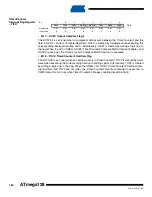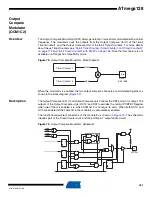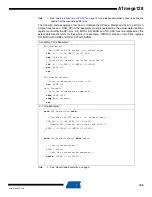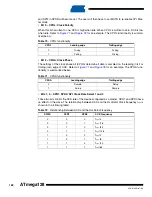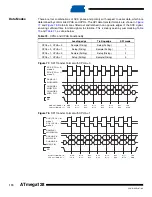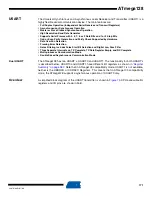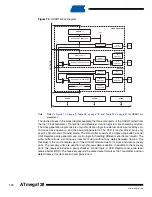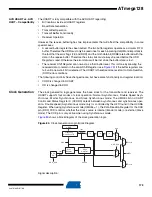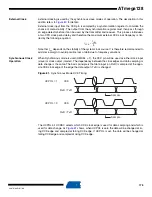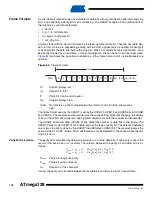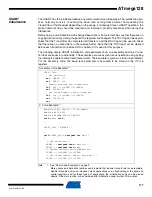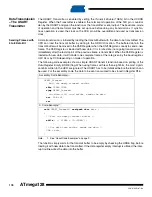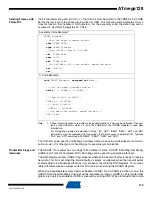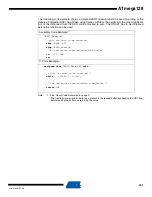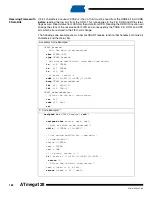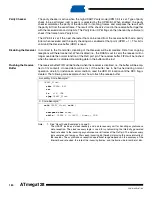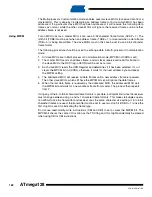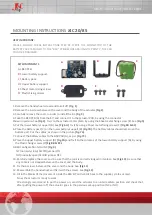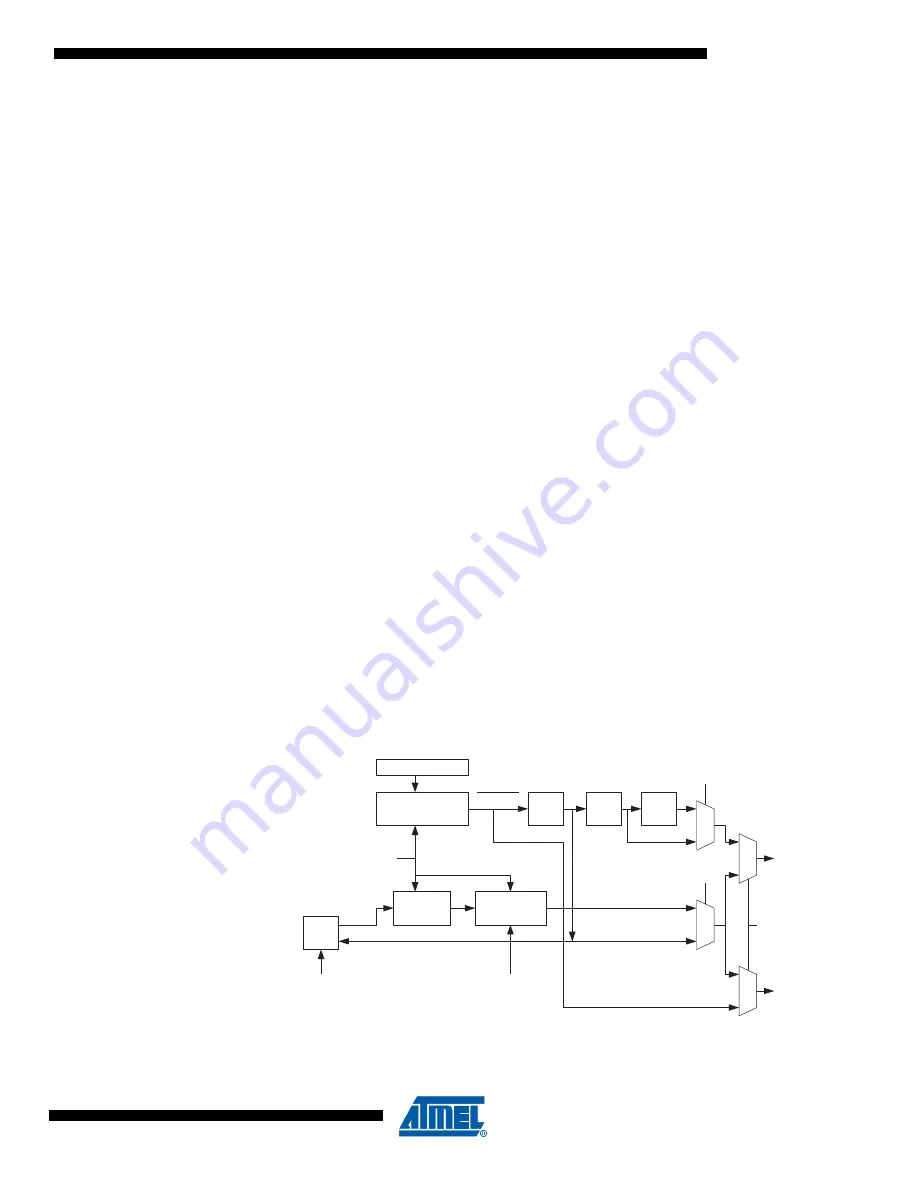
173
2467S–AVR–07/09
ATmega128
AVR USART vs. AVR
UART – Compatibility
The USART is fully compatible with the AVR UART regarding:
•
Bit locations inside all USART registers
•
Baud Rate Generation
•
Transmitter Operation
•
Transmit Buffer Functionality
•
Receiver Operation
However, the receive buffering has two improvements that will affect the compatibility in some
special cases:
•
A second buffer register has been added. The two buffer registers operate as a circular FIFO
buffer. Therefore the UDR must only be read once for each incoming data! More important is
the fact that the error flags (FE and DOR) and the ninth data bit (RXB8) are buffered with the
data in the receive buffer. Therefore the status bits must always be read before the UDR
Register is read. Otherwise the error status will be lost since the buffer state is lost.
•
The receiver Shift Register can now act as a third buffer level. This is done by allowing the
received data to remain in the serial Shift Register (see
) if the buffer registers are
full, until a new start bit is detected. The USART is therefore more resistant to Data OverRun
(DOR) error conditions.
The following control bits have changed name, but have same functionality and register location:
•
CHR9 is changed to UCSZ2
•
OR is changed to DOR
Clock Generation
The clock generation logic generates the base clock for the transmitter and receiver. The
USART supports four modes of clock operation: Normal Asynchronous, Double Speed Asyn-
chronous, Master Synchronous, and Slave Synchronous mode. The UMSEL bit in USART
Control and Status Register C (UCSRC) selects between asynchronous and synchronous oper-
ation. Double speed (Asynchronous mode only) is controlled by the U2X found in the UCSRA
Register. When using Synchronous mode (UMSEL = 1), the Data Direction Register for the XCK
pin (DDR_XCK) controls whether the clock source is internal (Master mode) or external (Slave
mode). The XCK pin is only active when using Synchronous mode.
shows a block diagram of the clock generation logic.
Figure 80.
Clock Generation Logic, Block Diagram
Signal description:
Prescaling
Down-Counter
/ 2
UBRR
/ 4
/ 2
fosc
UBRR+1
Sync
Register
OSC
XCK
Pin
txclk
U2X
UMSEL
DDR_XCK
0
1
0
1
xcki
xcko
DDR_XCK
rxclk
0
1
1
0
Edge
Detector
UCPOL


